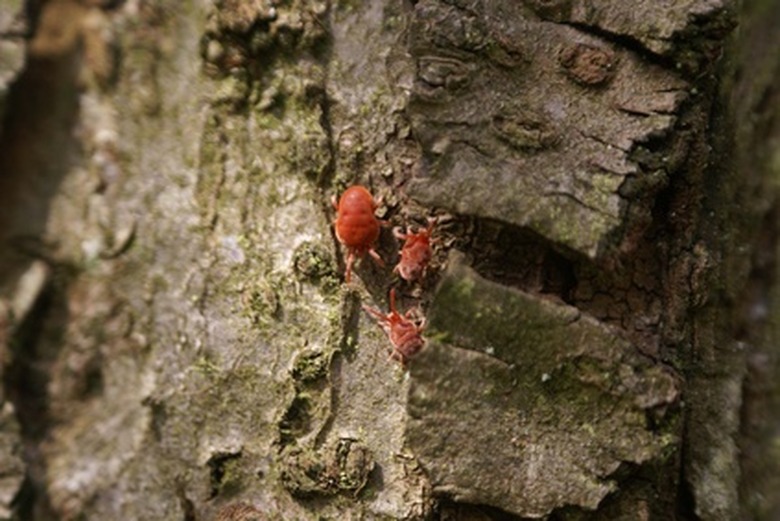Lime As An Insecticide
Agricultural lime is an important tool in gardening and is made from the burning of shells, bones and limestone. It is commonly used in the garden as a way of raising the pH level of the soil to help bring balance. It has the additional side effect of being an insecticide.
Function
Agricultural lime is an effective insecticide for small insect pests and mites within the garden. It dries out the young insect body and irritates larger adult insects. Unfortunately, lime is not a selective insecticide and will kill both harmful and beneficial insects.
Solution
According to Tanya L.K. Denckla, author of "The Gardener's A-Z Guide to Growing Organic Food," to make an effective lime spray solution gardeners should take 1/2 cup of agriculture lime mixed with a gallon of water and 3 tbsp. of biodegradable dish soap. The soap will help thicken the solution and prevent beading that can wash away easily during rainfall. Apply the solution once a week until there is a noticeable reduction in pests.
- Agricultural lime is an important tool in gardening and is made from the burning of shells, bones and limestone.
- Unfortunately, lime is not a selective insecticide and will kill both harmful and beneficial insects.
Considerations
Although lime is an effective insecticide, is dangerous when applied too often to plants. Lime will raise the pH level of the soil making it harder for most plants to absorb nutrients and water in the roots. Also, because lime will kill or irritate all insects that come in contact with it, plants may suffer from a lack of beneficial insects present in the soil.
Time Frame
It takes several days to test lime's effectiveness within your garden. Spray a small portion of a plant to see how it handles the solution. Wait three days before beginning to spot spray the plant where the insects are located. Identifying the pests will help you limit the applications of lime to where the insect nests might be located.
- Although lime is an effective insecticide, is dangerous when applied too often to plants.
- Also, because lime will kill or irritate all insects that come in contact with it, plants may suffer from a lack of beneficial insects present in the soil.
Further dangers
To prevent the absorption of toxins into the local environment, avoid spraying lime during rainy or windy weather, or when the plant has had too much moisture. Also do not spray lime on a plant when intense sunlight is present as this can burn the plant or blossoms where bees may pollinate.
References
- "The Gardener's A-Z Guide to Growing Organic Food"; Tanya L.K. Denckla; 2003
